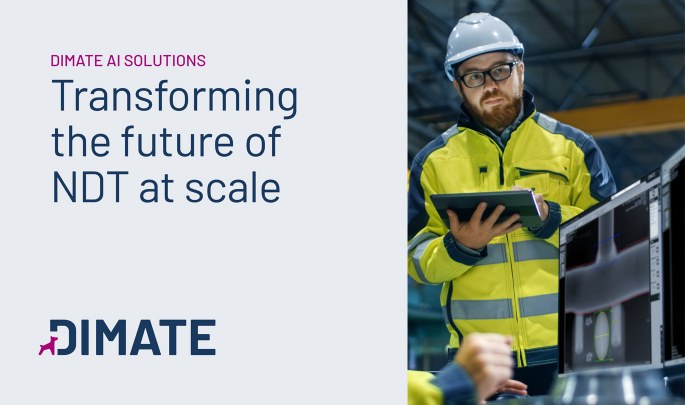Complete integration with other inspections management systems, enabling automated, audit-proof workflows and reducing the need for manual data entry.
DIMATE inspection
digitalization
Guiding industry in their digital transformation
evaluation time
critical assets
evaluations per hour
Your industry, our focus
Built for industry
leaders
DIMATE digitalizes non-destructive testing workflows to make them a key source of information in industry – maximizing operational performance and asset integrity.

The innovative NDT picture archiving and communication system enables our Plant Inspection Department and the NDT service contractors, to work in entirely new ways.
With DIMATE we are seeing the future of improved inspections.

DIMATE brings flow into NDT workflows
Full compliance with an ever-increasing number of industry standards and regulations, thanks to accurate and easily accessible records of inspections.
Automation and predictive maintenance reduce downtime and optimize use of assets.
Data-driven insights and predictive analytics drive increased asset reliability, performance and safety.
AI and analytics empower inspectors with decision-ready data, streamlined workflows and robust data capture.
Our solutions
Digital solutions that deliver
DIMATE 8-step guide
Your blueprint for a seamless digital transition
Explore your next step in a discovery session
Book your free session now.
- Better data
- Better decisions
- Plant performance
| Sun | Mon | Tue | Wed | Thu | Fri | Sat |
|---|---|---|---|---|---|---|
| 1 | 2 | 3 | 4 | 5 | 6 | 7 |
| 8 | 9 | 10 | 11 | 12 | 13 | 14 |
| 15 | 16 | 17 | 18 | 19 | 20 | 21 |
| 22 | 23 | 24 | 25 | 26 | 27 | 28 |
Calculate your savings
Start cutting costs tomorrow – already 1156 professionals in your industry have already calculated their savings
Accelerated Inspection Process – Time Saved per Refinery
Data Integrity – Decreased Repeated NDT Tests (Evaluating Contractor Efficiency)
Data Integrity – Unplanned Outages
Turn your ROI projections into action
Join companies like BP turning their ROI projections into measurable savings. Schedule your free expert consult today.
Here to support you in your digital journey
Get in touch with Florian Anke,
Innovation Manager at DIMATE.

















